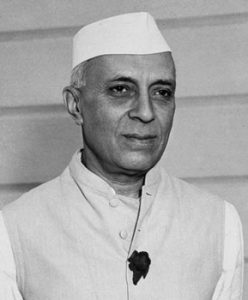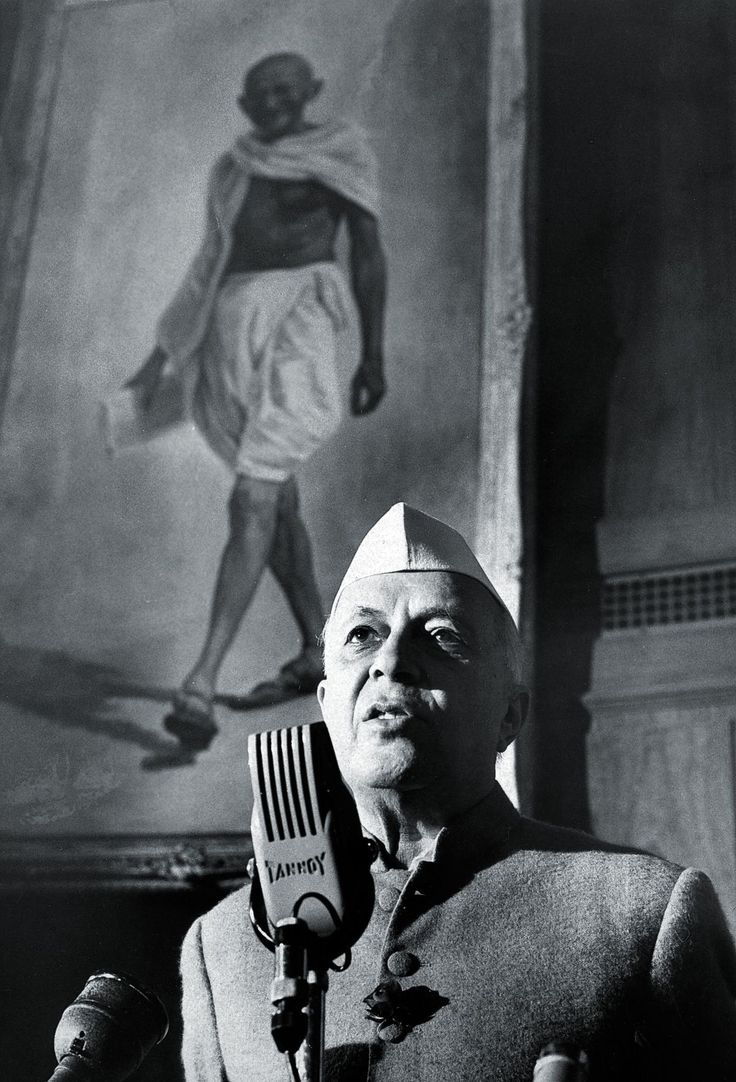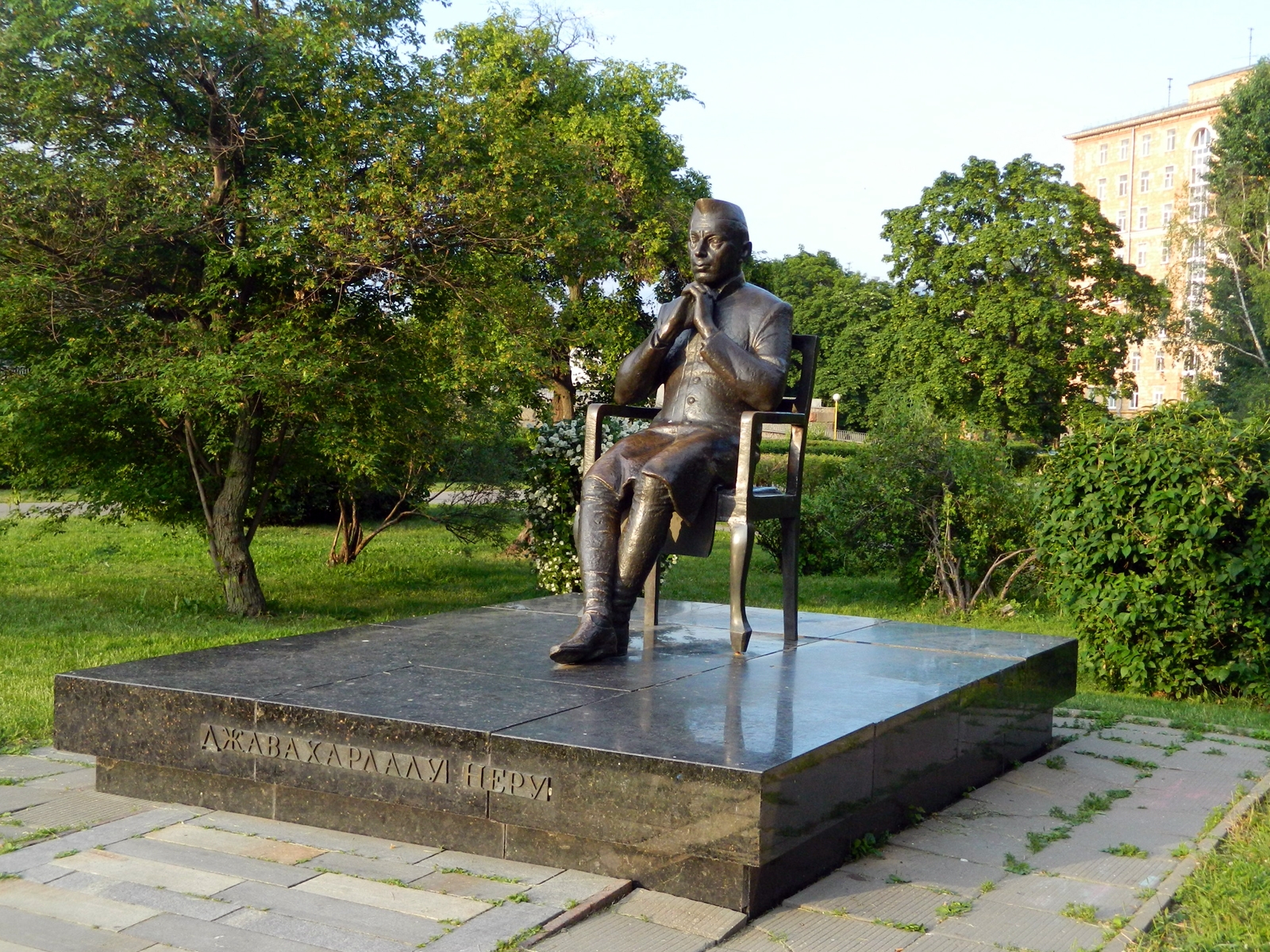Jawaharlal
Nehru
1889-1964

Jawaharlal Nehru was an eminent Indian politician and statesman, one of the most prominent global leaders of his time. Leading the left wing of India’s independence movement under Mahatma Gandhi’s guidance, he became the president of the Indian National Congress (INC) and, after India gained independence in 1947, its first Prime Minister. Nehru was the father of Indira Gandhi and the grandfather of Rajiv Gandhi, both of whom later served as Prime Ministers of India. Born on November 14, 1889, in Allahabad into the family of the renowned politician Motilal Nehru, he received an elite education, studying at Harrow School and Cambridge University, where he pursued natural sciences and law. Upon returning to India in 1912, Nehru immersed himself in the political struggle, joining the INC. His meeting with Mahatma Gandhi in 1916 profoundly transformed his views—from a moderate reformist, he became a staunch advocate for independence. In the 1920s, Nehru actively participated in civil disobedience campaigns, leading to multiple arrests by British authorities—he spent over 10 years in prison in total. In 1929, upon becoming the INC president, he introduced the concept of «Purna Swaraj» (Complete Independence), which became the Congress’s official goal. During this period, Nehru embraced socialist ideals, reflected in his writings, including his famous «Autobiography» (1936). After India’s independence in 1947, Nehru assumed leadership of the government, serving simultaneously as Prime Minister and Minister of External Affairs. Under his guidance, India adopted its 1950 Constitution, establishing a secular and democratic system. He implemented an industrialization program modeled on socialist principles, introduced Five-Year Plans, carried out land reforms, and laid the foundation for scientific and technological progress. In foreign policy, Nehru became the architect of the «Panchsheel» (Five Principles of Peaceful Coexistence, 1954) and a co-founder of the Non-Aligned Movement (1961). Seeking balance between East and West, he fostered close ties with the USSR as a counterweight to Western influence. Thus, Jawaharlal Nehru played a pivotal role in shaping independent India, defining its political, economic, and foreign policy trajectory for decades to come. In Moscow, a square is named in honor of the distinguished leader and writer. Nearby, in the 40th Anniversary of Komsomol Park, stands a monument to Jawaharlal Nehru.
Address: Moscow, 40th Anniversary of Komsomol Park

